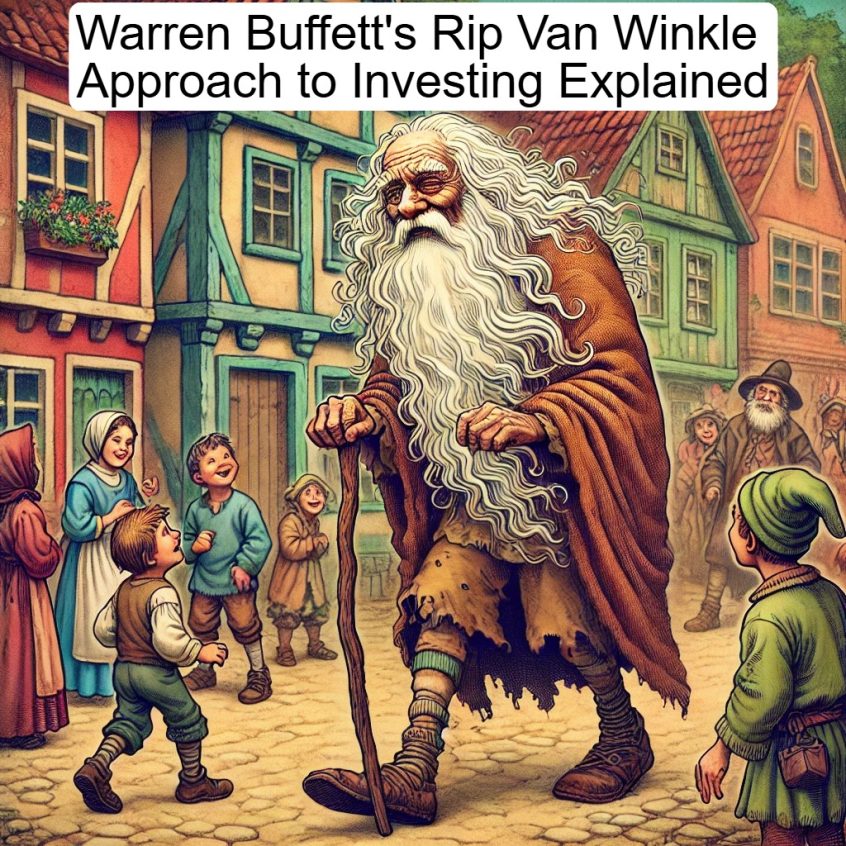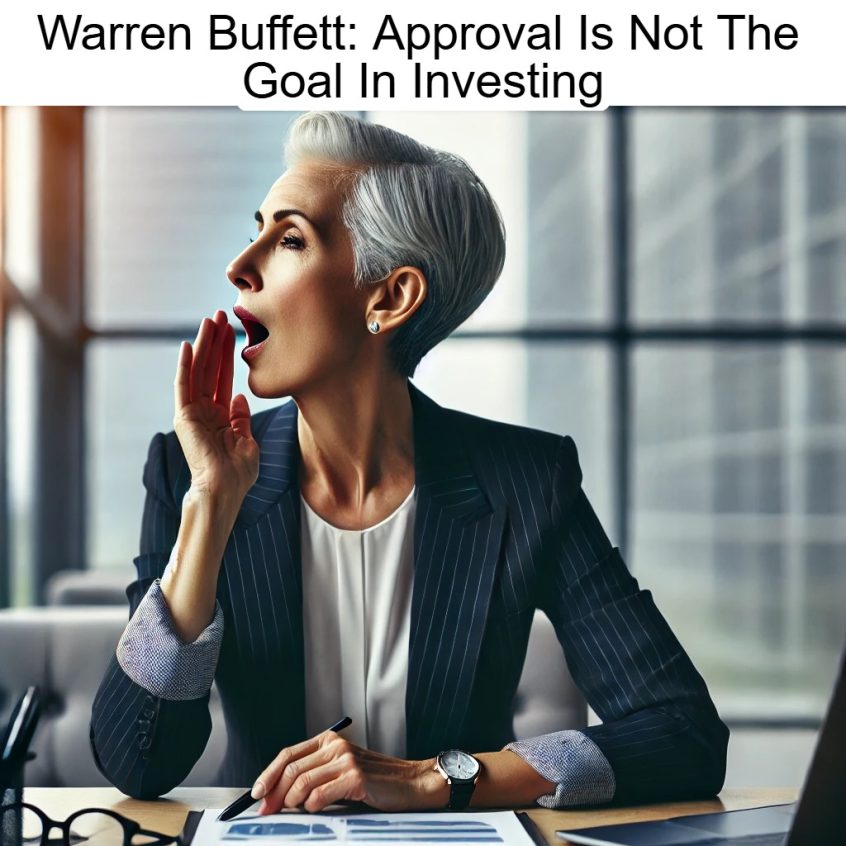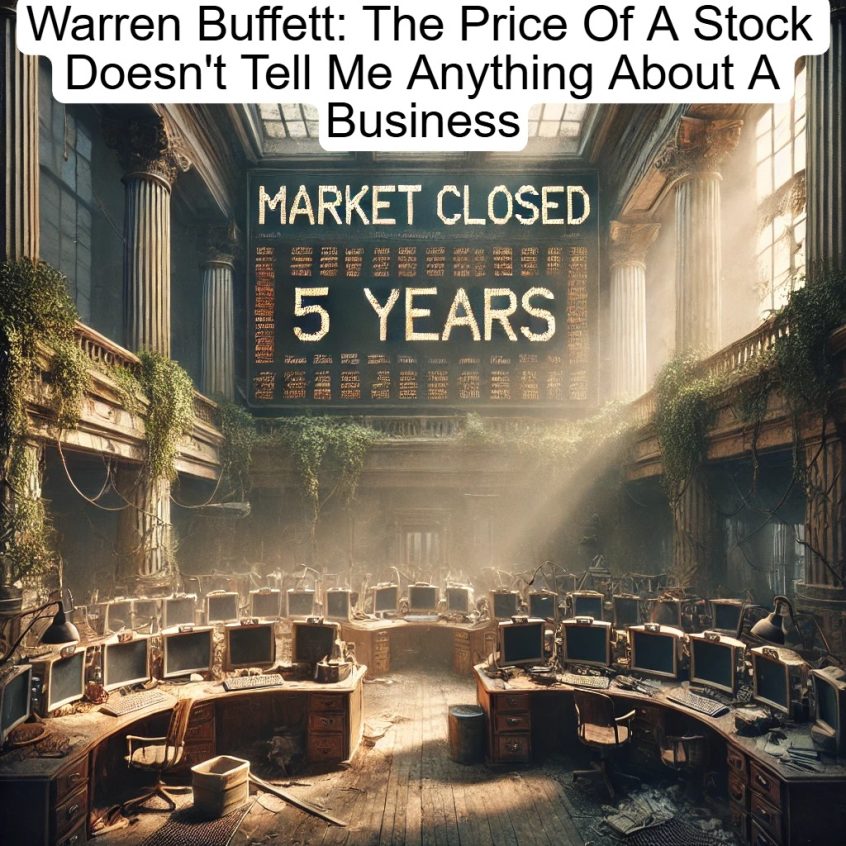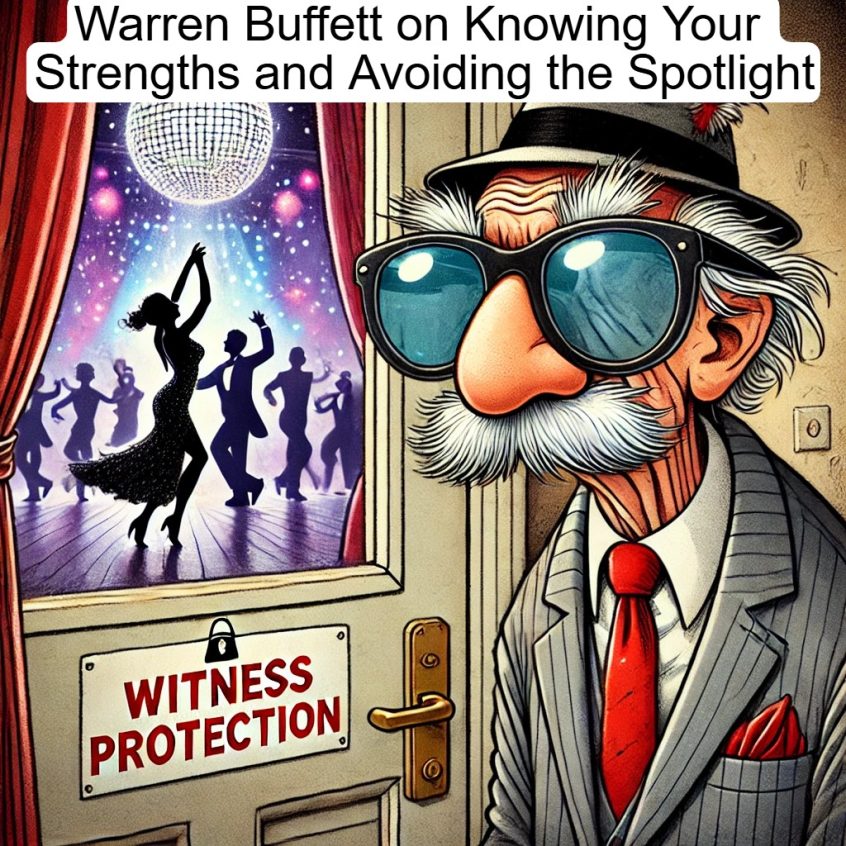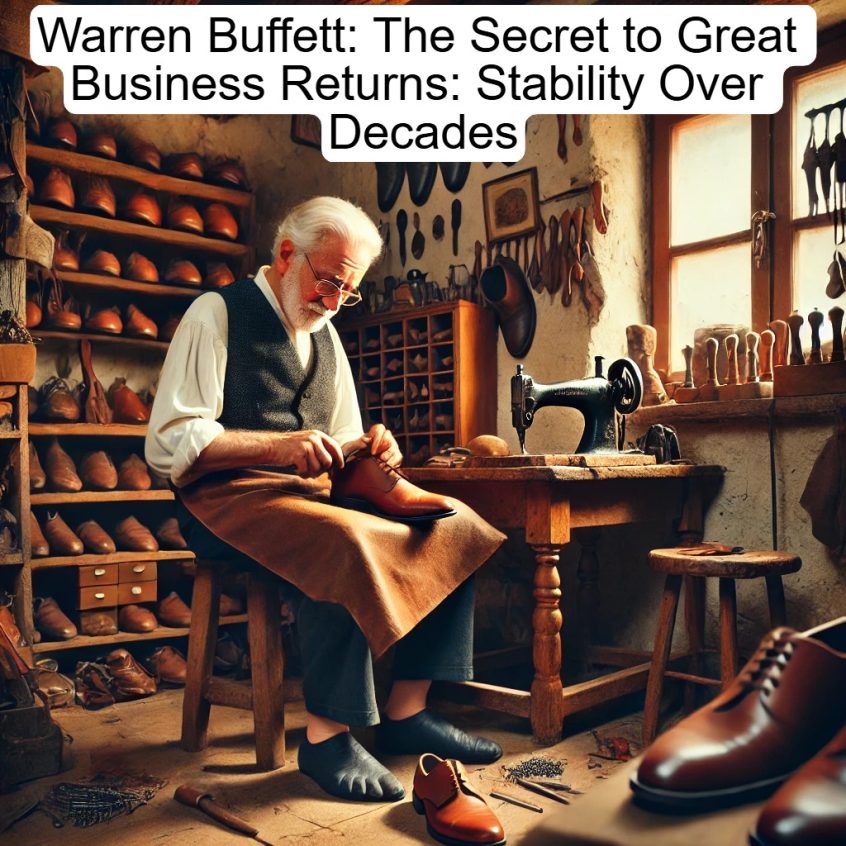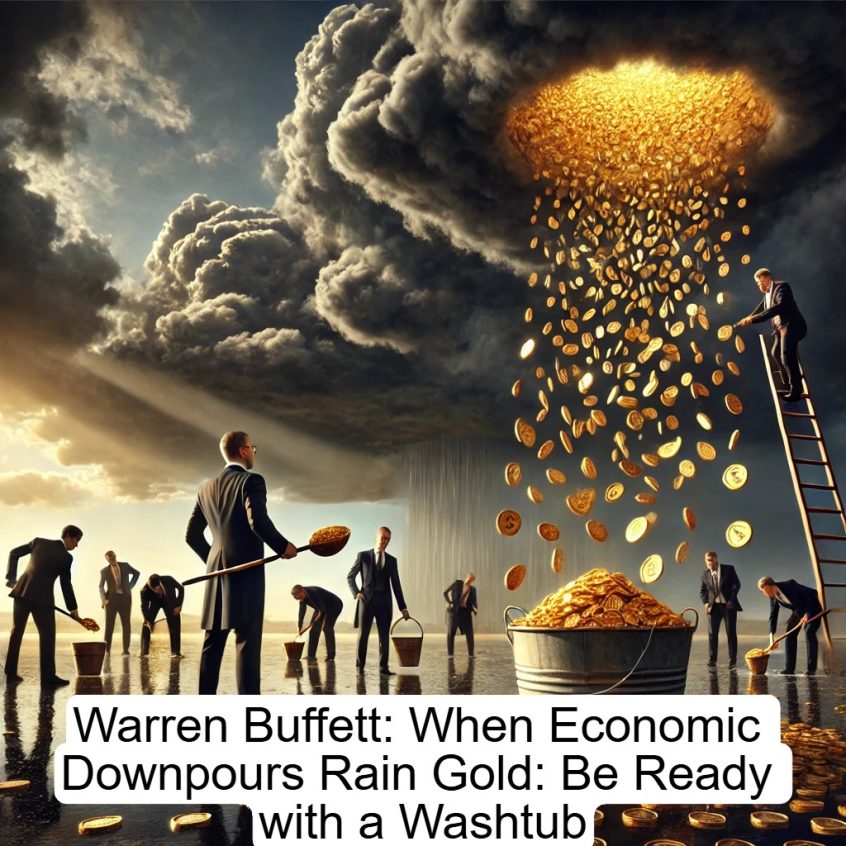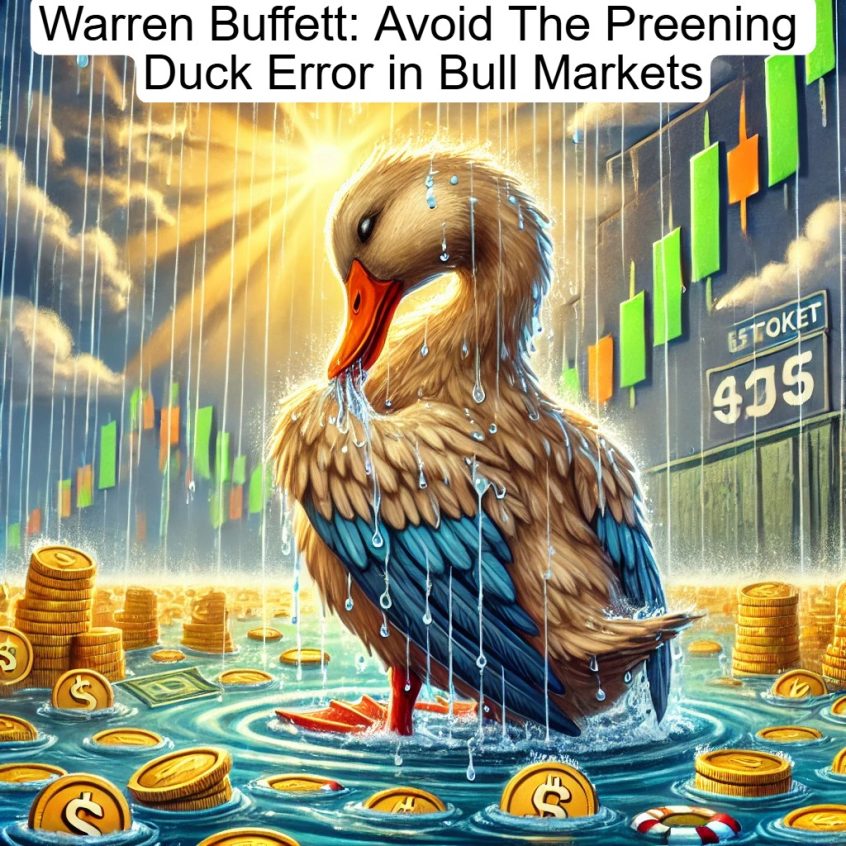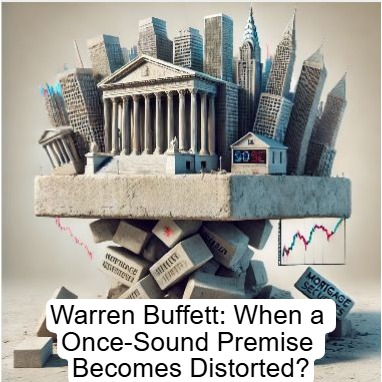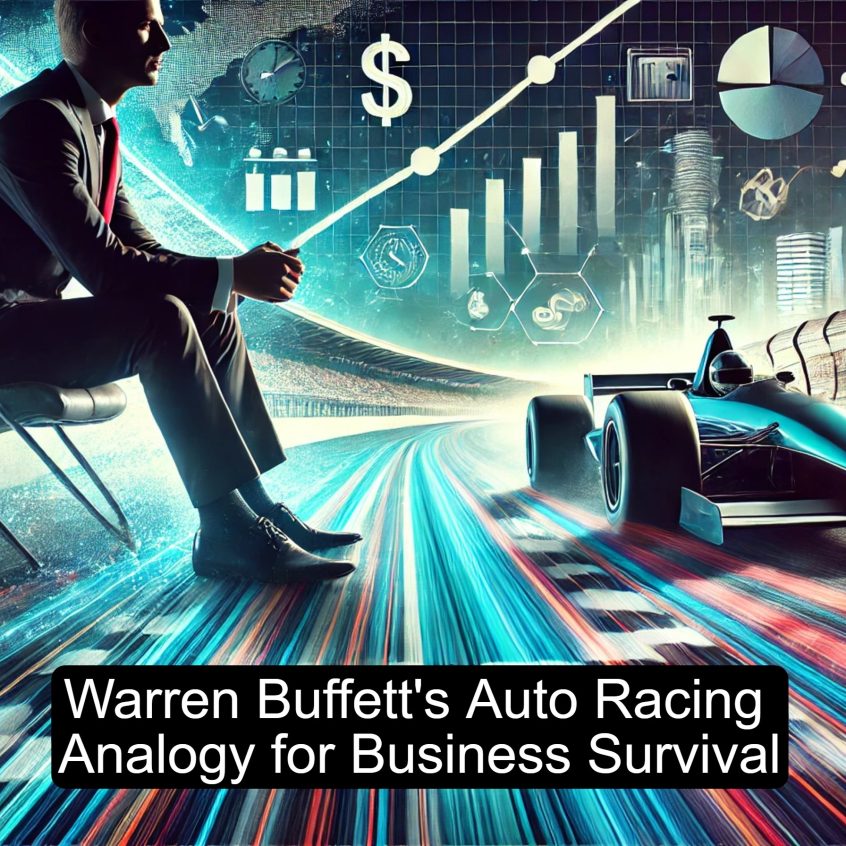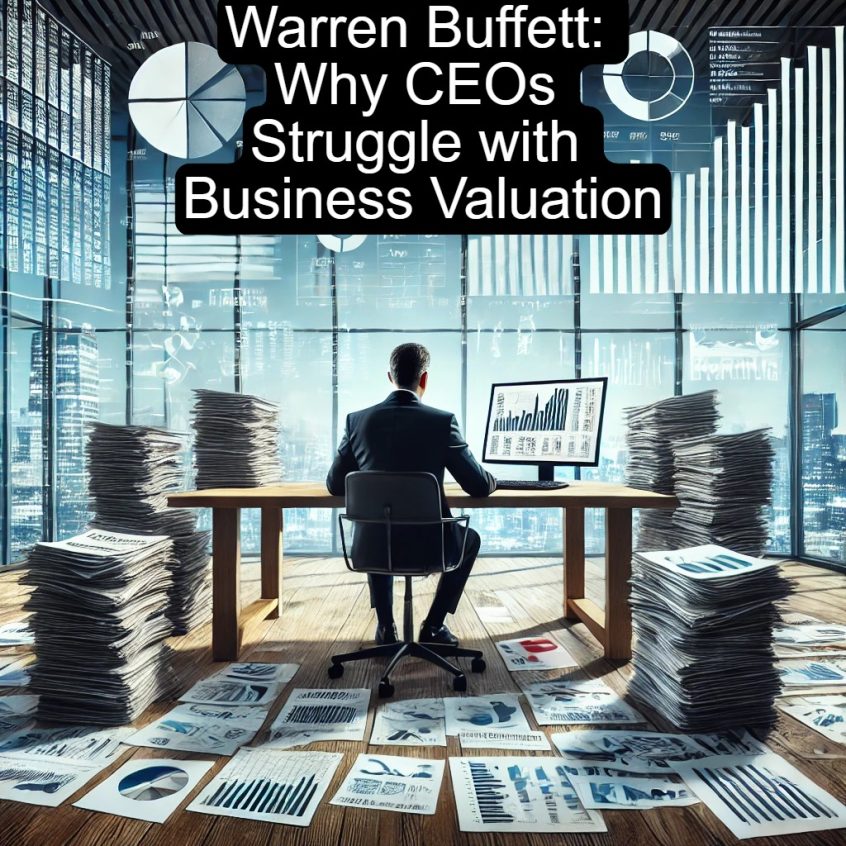Warren Buffett has long been admired for his ability to simplify the complexities of investing. Unlike many on Wall Street who rely on complex financial models and forecasts, Buffett has built his fortune by understanding something much more fundamental—human behavior. His insights, shared during a 2007 Q&A session at the … Read More
Warren Buffett: – The Investor’s Equation
In his 1977 Fortune article, How Inflation Swindles the Equity Investor, there’s a section titled – The investor’s equation in which Warren Buffett delivered a sobering analysis of how inflation and valuation affect investment returns. More than four decades later, his insights remain just as relevant. Buffett makes it clear … Read More
Warren Buffett: The Cinderella Syndrome in Investing
In his 2000 Berkshire Hathaway Annual Letter, Warren Buffett warned investors about the dangers of speculation and irrational exuberance. Reflecting on the market mania of the late 1990s, he wrote: “The line separating investment and speculation, which is never bright and clear, becomes blurred still further when most market participants … Read More
Berkshire’s Capital Charge Philosophy
During their recent episode, Taylor, Carlisle, and Alex Morris discussed Berkshire’s Capital Charge Philosophy. Here’s an excerpt from the episode: Tobias: It’s so different to the way that Berkshire does it, where, the $40 billion went to Apple, some of it goes to buybacks. Jake: I think more importantly than … Read More
Warren Buffett: Why Opportunities Abound In This Changing World
In the 2023 Berkshire Hathaway Annual Meeting, Warren Buffett argues that opportunities in investing remain abundant, driven by others making poor decisions. He reflects on how the world has changed since 1942, noting that new technologies don’t eliminate opportunities. Over the 58 years of running Berkshire Hathaway, he has observed … Read More
Apple: Buffett’s Greatest Trade?
During their recent episode, Taylor, Carlisle, and Alex Morris discussed Apple: Buffett’s Greatest Trade? Here’s an excerpt from the episode: Alex: Yeah. I think the kicker on top of that too is to your point, it was only a handful of years after IBM, which was I think it was … Read More
Warren Buffett’s Warning: Why Popular Opinion Doesn’t Equal Sound Investing
In his 1962 Buffett Partnership Letter, Warren Buffett reflects on conservative investing, cautioning against blindly following conventional methods. He notes that buying long-term bonds, once considered safe, often fails to preserve real buying power due to inflation. Similarly, he warns against overpaying for blue-chip stocks based on high price-earnings ratios, … Read More
Buffett’s PetroChina Investment
During their recent episode, Taylor, Carlisle, and Alex Morris discussed Buffett’s PetroChina Investment. Here’s an excerpt from the episode: Tobias: I remember PetroChina being– And I’d been sort of interested in Buffet and Munger for about five years by that point when PetroChina happened. And I remember it being a … Read More
Warren Buffett’s Rip Van Winkle Approach to Investing Explained
In his 1991 Berkshire Hathaway Annual Letter, Warren Buffett stresses a patient, focused investment strategy, likening the stock market to a mechanism that transfers wealth from active to patient participants. He highlights Berkshire Hathaway’s first significant international investment in Guinness, while reaffirming confidence in enduring businesses like Coca-Cola and Gillette. … Read More
Warren Buffett: Approval Is Not The Goal In Investing
In his 2008 Berkshire Hathaway Annual Letter, Warren Buffett says some people are keeping their money in the “boring place” because they feel safe. But in the long run, that’s not a smart move because the money won’t grow, and it will lose its value. Instead, he suggests thinking carefully, … Read More
Warren Buffett: The Price Of A Stock Doesn’t Tell Me Anything About A Business
In this television interview, Warren Buffett explained that most professional investors focus on short-term stock price movements rather than viewing stocks as ownership in a business. True value investing means not being concerned about whether the stock market is open tomorrow. A good investment should hold its worth even if … Read More
Warren Buffett on Knowing Your Strengths and Avoiding the Spotlight
In his 2019 Berkshire Hathaway Annual Letter, Warren Buffett reflects on his experience with corporate directors, acknowledging their decency, likability, and intelligence, though many lacked the aptitude for handling money or business matters. He humorously notes that everyone has areas of incompetence saying, if I were ever scheduled to appear … Read More
Warren Buffett: The Secret to Great Business Returns: Stability Over Decades
In his 1987 Berkshire Hathaway Annual Letter, Warren Buffett discussed the value of stability in businesses, arguing that severe change and exceptional returns rarely coexist. Many investors chase exotic, rapidly evolving companies, imagining future profitability while ignoring current realities. In contrast, Buffett highlights that the best returns often come from … Read More
Warren Buffett: When Economic Downpours Rain Gold: Be Ready with a Washtub
In his 2016 Berkshire Hathaway Annual Letter, Warren Buffett discusses Berkshire Hathaway’s commitment to long-term growth in earning power per share, acknowledging that actual earnings may occasionally decline due to economic downturns or industry-specific events. Berkshire retains all earnings, reinvesting significantly more than competitors, to achieve sustainable growth. While gains … Read More
Warren Buffett: Avoid The Preening Duck Error In Bull Markets
In his 1997 Berkshire Hathaway Annual Letter, Warren Buffett reports an $8 billion increase in Berkshire Hathaway’s net worth, reflecting a 34.1% rise in per-share book value. While acknowledging strong performance, Buffett tempers enthusiasm, noting the broader market’s exceptional gains in 1997. He humorously warns against overconfidence, likening it to … Read More
Warren Buffett: When a Once-Sound Premise Becomes Distorted
In his interview with the Financial Crisis Inquiry Commission, Warren Buffett explained that the housing bubble leading to the financial crisis was fueled by a pervasive belief that house prices couldn’t decline. This belief, embedded in psychology and reality, became widely accepted by the media, investors, mortgage bankers, the public, … Read More
Warren Buffett’s Mindset – Would You Hold This Stock if the Market Closed for 5 Years?
During the 1997 Berkshire Hathaway Annual Meeting, Warren Buffett explained why he focuses more on the intrinsic value of businesses rather than market trends or capital flows. He dismisses the significance of who is buying or selling securities or macroeconomic indicators, such as market signals or Federal Reserve actions, as … Read More
Warren Buffett’s Auto Racing Analogy for Business Survival
In his 2010 Berkshire Hathaway Annual Letter, Warren Buffett discussed the importance of financial stability, drawing a parallel between auto racing and business: to succeed, you must first survive. He warns against the risks of leverage, which amplifies gains but can lead to ruin when losses occur, as seen in … Read More
Warren Buffett: Why CEOs Struggle with Business Valuation
During the 2001 Berkshire Hathaway Annual Meeting, Warren Buffett highlights a common issue among CEOs who struggle to assess the value of businesses they aim to acquire. Feeling unsure about asset allocation, they often turn to investment bankers for advice. However, this advice is typically biased, as investment bankers are … Read More
Warren Buffett: Most of My Capital-Allocation Decisions Have Been No Better Than So-So
In his 2022 Berkshire Hathaway Annual Letter, Warren Buffett reflects on his mistakes and successes over 58 years of managing Berkshire Hathaway. He acknowledges that most of his capital-allocation decisions have been average, with a few standout successes and some bad decisions salvaged by luck. Buffett highlights the dual nature … Read More







